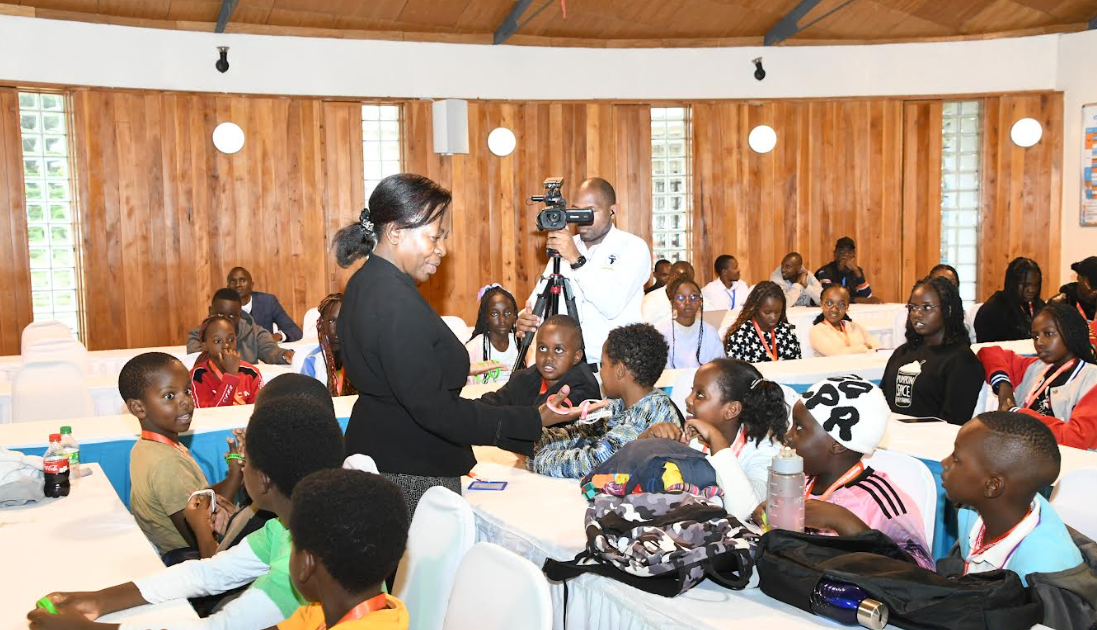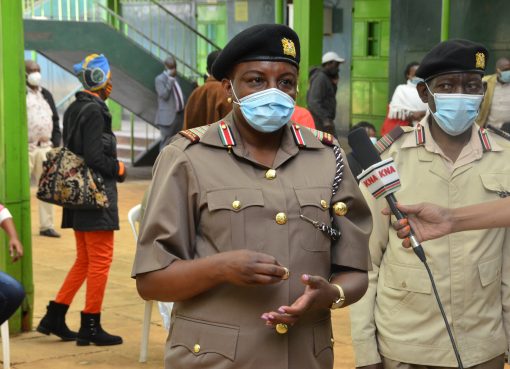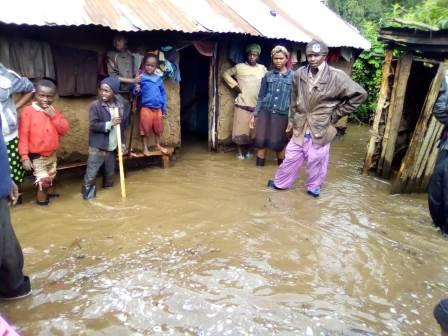The CEO of the Centre for Mathematics, Science, and Technology Education in Africa (CEMASTEA), Jacinta Akatsa, has underscored the critical role played by digital skills in today’s rapidly evolving world.
Speaking during the opening of the 6th CEMASTEA STEM Boot Camp, which runs from 2nd to 6th December 2024 at the institution in Karen, Akatsa highlighted how technology is revolutionising every aspect of daily life, from communication and work to shopping and education.
“Technology is more than just a tool; it is the foundation of how we communicate, innovate, and advance in today’s world,” she stated.
Digital literacy has evolved from a luxury to an essential skill for the next generation of leaders and innovators, added Akatsa.
The CEO further stated that mastering areas such as robotics, creative coding, mobile App development, 3D/graphic design, and the application of Mathematics and Science is no longer reserved for a few, adding that these skills are now critical for shaping the future workforce and opening up numerous opportunities in the growing digital economy.

“When you learn to design mobile Apps, programme robots, or apply mathematics and science to solve real-world problems, you’re not just learning technical skills,” Akatsa explained.
“You’re preparing yourself to be a part of a future where technology is at the heart of every industry. These skills open doors to countless career opportunities in a tech-driven world,” she said.
The non-residential CEMASTEA STEM Boot camp brought together students from Grade 4 to Form 4 nationwide, offering an immersive, hands-on experience in advanced technology fields such as robotics (Arduino, IoT, Ev3, and Spike), creative coding, mobile app development, and 3D graphic design.
The CEO stressed that the skills gained, including coding, inquiry-based learning, self-efficacy, and computational thinking, will not only support academic success but also prepare learners for future careers in technology, engineering, business, and other fields.
Akatsa’s message is clear: The next generation should not just consume technology but also create it. As the digital world evolves, focusing on acquiring and mastering these essential skills will be crucial in preparing young innovators for the challenges and opportunities of the future.
Other than technical skills, the CEO revealed that the boot camp will foster creativity, critical thinking, problem-solving, and collaboration.

She encouraged learners to seize the opportunity to become future tech innovators, engineers, developers, and leaders, noting that the skills gained will empower them to become tech entrepreneurs and game-changers who will shape the future.
“The skills will enable you to become the next generation of tech-entrepreneurs and game-changers who will shape the future,” she said.
The CEO further assured learners of the institution’s commitment to creating a supportive and interactive environment where they can freely explore, experiment, and ask questions without the fear of failure.
“Learning thrives in an environment where learners are encouraged to ask questions, explore new ideas, and experiment without fear of failure,” she stated.
Akatsa emphasised the critical role educators, mentors, and facilitators play in guiding and inspiring learners throughout their career journey in the institution, saying, “They are here to support you every step of the way, helping you unlock your potential and encouraging you to push the boundaries of what you can achieve.”
The CEO encouraged learners to embrace collaboration and teamwork, emphasising that learning from one another is just as crucial as learning from instructors.
“Teamwork and collaboration are vital in the tech world, where peers enrich each other’s experiences,” she said.
The learners, working in groups, have been assigned to develop STEM projects and propose practical solutions. They will pitch their ideas on Friday, demonstrating how these solutions can address everyday challenges and enhance daily life.
At the same time, Programme Coordinator for STEM, Makoba Kizito, stated that the purpose of the Bootcamp is to cultivate creativity and innovation among young Kenyans.
He explained, “By hosting this Boot Camp, we provide learners with the opportunity to unleash their creativity, allowing them to think critically, face challenges, and develop essential skills. For example, in robotics, they learn to create the language needed to code, formulate, and programme robots, enabling them to execute specific operations and functions.”
Kizito said that the training will teach learners how robots and machines can be used across various industries, citing examples like traffic lights, automated jets, sensor-based barriers, drip irrigation systems (controlling humidity and temperature), light sensors, and biomimicry (imitating nature).
“The goal is to spark curiosity and encourage learners to think critically about how technology can solve real-world problems,” he explained.
This approach, Kizito said, would help them develop a deeper understanding of how robotics and automation can transform everyday tasks and industries.
The coordinator divulged that the boot camp is helping learners see themselves as problem-solvers.
He urged county governments to partner with CEMASTEA to expand the programme nationwide, providing more young people with the opportunity to develop the skills needed for innovation and problem-solving.
Deputy Coordinator for STEM, Martin Mungai, explained that the holiday training sessions are designed to help learners develop an interest in STEM subjects and connect their classroom knowledge with real-world applications.
“We try to propagate the same enthusiasm for STEM here,” said Mungai, stressing that the programme encourages learners to explore fields such as robotics, 3D/graphic design, coding, and IoT (Internet of Things) through the hashtag #Coding4life.
He added, “The focus is on enhancing their coding skills, particularly in Python and C++, and showing how these skills are applied in real-life projects like mobile app development.”
Mungai noted that these areas will inspire learners to think creatively and “think outside the box.”
On her part, Natalia Mugendi, a student from Maryhill Girls High School who has participated in the training twice, shared that the programme has been highly beneficial to her.
Mugendi is currently learning mobile App development and coding various applications, including one that functions as a flashlight on the screen.
She noted that this hands-on experience helped her better understand mobile development, describing the process as enjoyable and directly related to real-world applications.
Reflecting on the programme, she said, “For me, the experience was ten out of ten because coding is highly valued here due to the rise of technology.”
Mark Ryan Makori, a student from Kiburi Boys High School, echoed Natalia’s sentiments.
He expressed his gratitude to CEMASTEA for offering the programme, explaining that it has introduced many students to STEM-related fields.
Makori also shared his expectation for further benefits, stating that the initiative will open up more opportunities for students in the future.
By Ian Chepkuto




